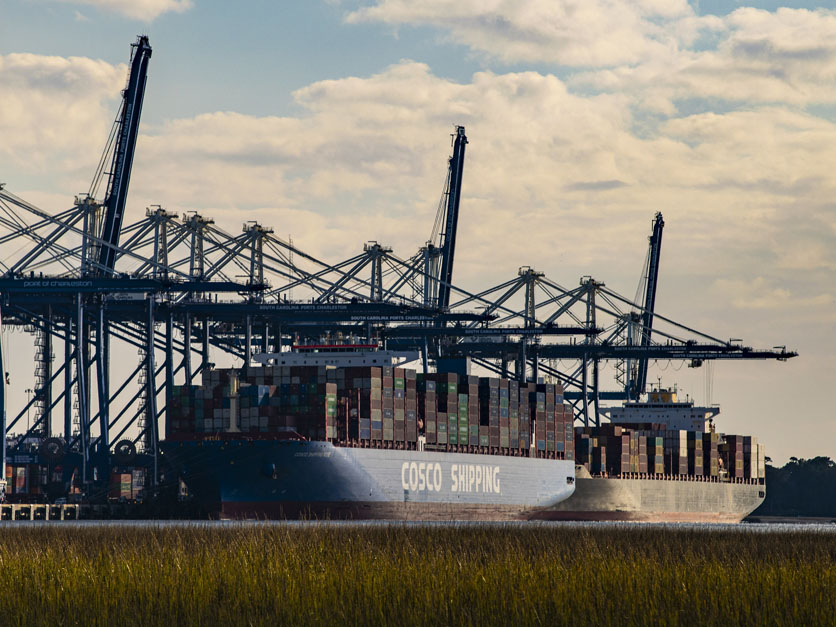Questions have continued to swirl around the future of an agreement that allowed Ukraine to supply global food markets out of its Black Sea ports.
UN officials said Monday that vessels loaded with grain at Odesa ports are still being processed and allowed to leave the Black Sea. That’s despite Russia’s declaration on Saturday that it has suspended its participation in the deal that allows for the export of Ukrainian ag commodities.
There are 86 outbound ships carrying 2 million metric tons of Ukrainian farm goods that have left the Odesa ports and still need to be inspected by the Joint Coordination Center in Istanbul.
“The Russians have not terminated – the Russians have not pulled out of the Black Sea Grain Initiative,” United Nations Under Secretary General for Humanitarian Affairs Martin Griffiths said Monday.
“The words they have used, very carefully, is that they have suspended participation in that initiative for an indefinite period,” Griffiths added. “And as a result of that, we continue with this initiative … to move the ships outbound, where we, with Turkey … inspect those outbound ships.”
But, but, but: A statement released Monday by Russia says ships traversing the Black Sea security corridor is “unacceptable.” A UN spokesman said officials are reviewing the statement.
Republicans set stage for tougher USDA oversight
Agriculture Secretary Tom Vilsack is getting hit with demands from key congressional Republicans to justify USDA’s funding priorities. The demands make it clear that Republicans intend to ramp up oversight of the department should they get control of one or both chambers in the mid-term elections.
Four GOP members of the House Agriculture Appropriations Subcommittee, including ranking member Andy Harris, R-Md., and Rep. Dan Newhouse, R-Wash., are demanding information on how the USDA is running the $3.5 billion Partnerships for Climate-Smart Commodities program.
“We are dismayed at the lack of transparency and congressional consultation throughout the development of this process. In no way can $3.5 billion … be considered a ‘pilot program,’ and there must be direct congressional involvement before a program of this magnitude is implemented,” the House Republicans say in a letter to Vilsack.
Over in the Senate: The top Republican on the Senate Agriculture Committee, John Boozman of Arkansas, is asking USDA to explain how it spent $11 billion in pandemic assistance Congress provided through the fiscal 2021 spending bill.
Winter wheat crop struggling
We’re watching the winter wheat crop because of the ongoing drought, and USDA reports that 35% of the crop is in poor to very poor condition, compared to 21% at this point a year ago. Another 37% of the crop this fall is rated as fair and 23% as good. Only 5% is rated excellent.
Some 62% of the winter wheat crop has emerged as of Sunday, up from 49% a week ago. The average emergence at this point is 66%. About 58% of the Kansas crop has emerged; the average at this point is 67%.
By the way: The corn harvest continues to run ahead of the average pace. USDA says 76% of the corn had been harvested as of the end of last week. The five-year average at this point is 64%.
TFI hits proposed regs on accidental chemical releases
The fertilizer industry is pushing back on proposed EPA regulatory changes aimed at preventing accidental chemical releases. The Fertilizer Institute says the proposal is overly broad.
In particular, the group is raising questions about a proposal that facilities regulated under the Risk Management Program, or RMP, take into consideration “external events” because of the increase in extreme weather that has been linked to climate change.
Interested in more coverage and insights? Receive a free month of Agri-Pulse!
If that provision is finalized, EPA will have to provide guidance on how facilities should account for climate change, TFI says in comments to the agency.
By the way: Other groups don’t think EPA is going far enough, and they’re urging the agency to add ammonium nitrate fertilizer to the list of chemicals covered under the RMP.
TFI says ammonium nitrate is a valuable fertilizer and EPA should coordinate with other federal agencies to determine whether further regulation is needed rather than adding it to the RMP.
Crime getting top rural play heading toward election.
According to the Democratic-aligned One Country Project’s quarterly media analysis, crime is getting more coverage in rural news outlets than in national media. In fact, crime is the top issue for rural coverage, according to the analysis. Schools and abortion also are getting more play in rural outlets than in national ones.
Crime also is leading rural news coverage in two battleground states – Pennsylvania and Wisconsin – and also is a top issue in Arizona and North Carolina.
One Country Project founder and former North Dakota Democratic Sen. Heidi Heitkamp says the “conversations in rural America continue to focus on the economy and the resurrection of the job market.” But she also says issues regarding abortion, crime and energy are driving rural voters to the polls to elect candidates who reflect their values
He said it. “The truth is that electric vehicles aren’t a reliable option for everyone, nor are they affordable, nor can it be presumed that people even want them.” – Rep. Doug LaMalfa, a California Republican who serves on the House Ag Committee, offered those thoughts on a letter he and several colleagues sent to California Governor Gavin Newsom urging him to repeal a statewide mandate that all vehicles sold in the state by 2035 be electric.
Bill Tomson, Steve Davies and Jacqui Fatka contributed to this report.
Questions, comments, tips? Email philip@agri-pulse.com.




![Steve headshot 250x200[1]](http://www.agri-pulse.com/ext/resources/Headshots/Staff-Photos/thumb/Steve_Headshot_250x200[1].JPG?1738947158)
